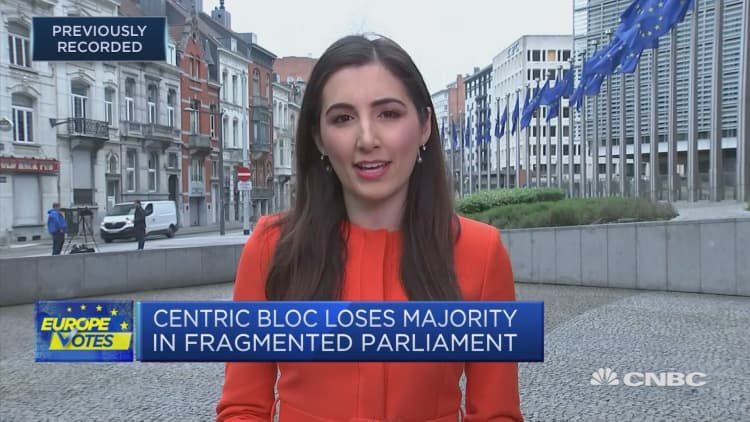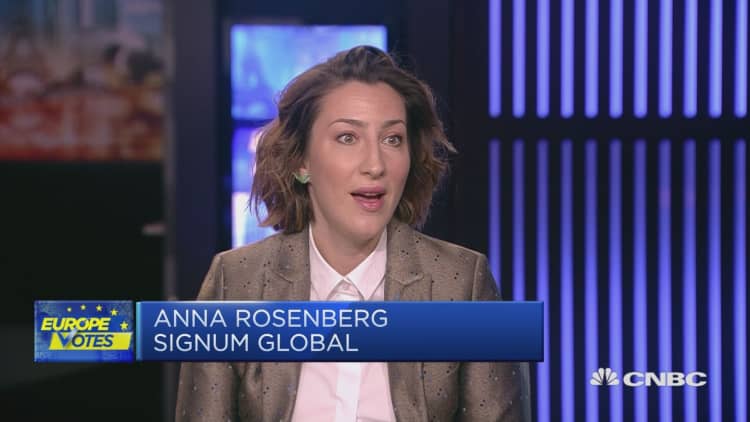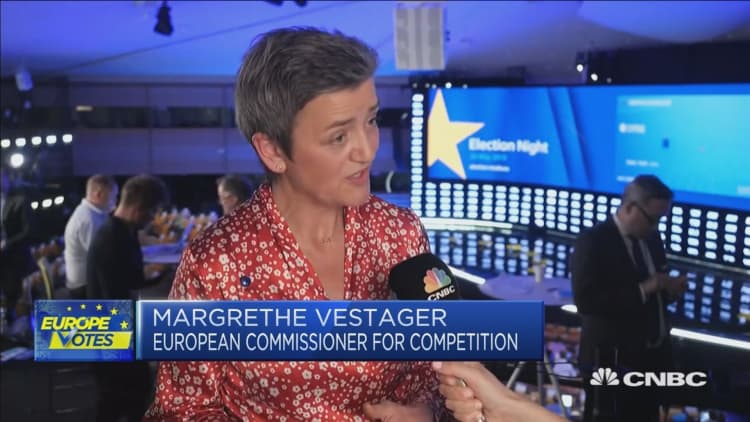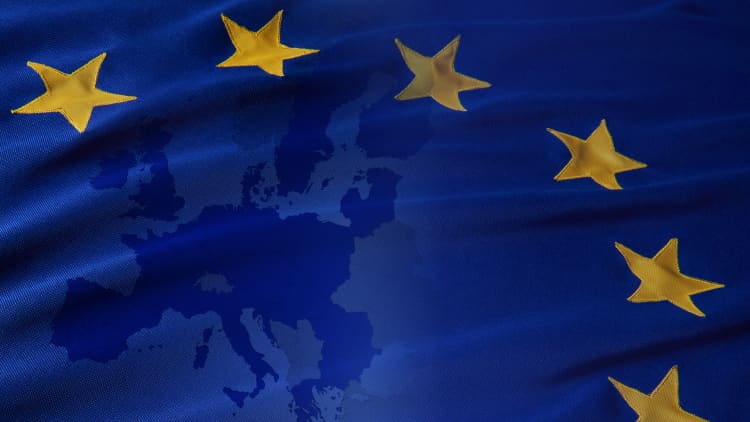
The EU Parliament will be much more fragmented over the next five years with the established centrist bloc set to fall short of securing a majority at this week's election, early results show.
The current projection from the European parliament is that center-right and center-left blocks will end up with a total of 329 seats out of 751.The lack of a majority for the centrist bloc — the center-right European People's Party (EPP) and the center-left Socialist and Democrats (S&D) which has held power in Brussels for several decades — could further complicate decision-making at the European Union.
Pro-EU parties will hold onto two-thirds of the seats at the EU Parliament, but their nationalist opponents have also produced solid results.Italy's anti-immigration Lega party has reportedly secured 28 seats, essentially doubling its level of national support.
Euroskeptic groups in France and the U.K. look to have held the gains they saw in 2014 but that said, the results on Monday morning suggested a strong showing for Liberal and Green parties.

Turnout rises
Voter turnout has typically been one of the EU election's biggest challenges. Indications show that figure has hit 51% this year, up from 43% in the 2014 election.
This year's vote was particularly relevant due to the surge of anti-EU and nationalist parties across the region. However, the pro-EU parties look to have largely held their ground in many countries and the euro rose slightly in early trading Monday.
Holger Schmieding, an economist at Berenberg, said there had been "no dramatic upset" in a research note as the early exit polls were released.
"Defying the doomsayers once again, Europe continues to muddle through reasonably well. Judging by exit polls and first projections, the EU election will result in a more fragmented parliament with a slightly increased presence of euroskeptic right-wing parties," he said.
However, he added that "the deeply divided right-wingers will remain far away from wielding any significant power at the European level. They will not be able to block significant decisions."
France
In France, Marine Le Pen's euroskeptic National Rally looks to have topped the European election vote, winning 22 seats, narrowly beating the centrist alliance of President Emmanuel Macron which won 21.
The marginal victory for Le Pen's party marked a symbolic victory for nationalist supporters across the bloc.
In a statement, Macron's office described the performance as disappointing but not disastrous. It also said pro-EU parties were still in the majority.
UK
Projected results in the U.K. showed the newly-formed Brexit Party had comfortably beat the country's two main parties, with voters expressing their frustration over deadlock in Westminster.
The biggest gainer appeared to be the Liberal Democratic party which had campaigned with a message to remain a part of the European Union.
It comes shortly after Conservative Party leader Theresa May announced her resignation as prime minister on Friday morning.

Germany
Chancellor Angela Merkel's conservative alliance secured the most seats in Germany in the European Parliament election on Sunday, the early results showed, with the Greens and the anti-immigration Alternative for Germany (Afd) party set to finish second and fourth respectively.
Merkel's Christian Democratic Union (CDU), and its partner the Christian Social Union, received roughly 28% of the vote share equating to 29 seats, followed by the Greens with approximately 21 seats.
Italy
Meanwhile in Italy, the Lega party picked up the most votes comfortably beating its coalition partner the Five Star Movement (M5S).
Early results showed Deputy Prime Minister Matteo Salvini's Lega party had secured around 28 seats, while socialist PD has taken 19 seats to secure second place.

M5S, led by Italy's other deputy leader Luigi Di Maio, looked on track to receive around 17% of the vote, securing 14 seats. That compared with 32% in the 2018 country-wide election and 21% in the EU vote five years ago.
The result could herald a dramatic shift in the coalition government's dynamic, following months of wrangling over their respective manifestos and ministerial appointments.
Why it matters
The European parliamentary election is the second-largest democratic exercise in the world after, with citizens across 28 nations voting for their new representatives. More than 400 million people are eligible to take part. Only India's national elections are bigger.
The vote has major implications for the functioning of the bloc and the future of national politics in each member state. The EU Parliament has a say on policies affecting things such as agriculture and trade. It comprises 751 MEPs (members of the European Parliament).



